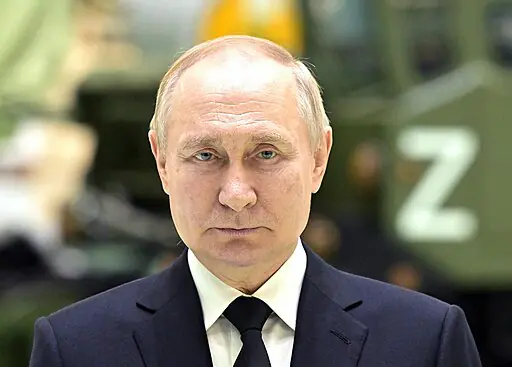New decree allows foreign nationals to seek residency in Russia to escape neoliberal ideals
Russian President Vladimir Putin has signed a new decree aimed at establishing Russia as a refuge for individuals disillusioned with Western liberal values. This decree allows foreigners from countries that do not align with “Russian spiritual and moral values” to seek temporary residency in Russia through an expedited and simplified process.
The decree, announced on Monday, signals a significant policy shift as Russia positions itself as a sanctuary for those rejecting what it terms as “destructive neoliberal ideas” prevalent in Western nations. Under the new policy, foreign nationals can apply for temporary residence without the usual requirements of demonstrating knowledge of the Russian language, history, or basic laws. This streamlined process will offer three-month visas starting next month.
Embed from Getty ImagesThe policy targets individuals who are dissatisfied with their home countries’ liberal values and are attracted to Russia’s purportedly traditional moral and spiritual values. Russia plans to issue a list of countries eligible for this exception, marking a notable departure from its previous immigration policies.
The announcement has garnered support from far-right figures and conspiracy theorists, who have long praised Russian society as a bulwark against Western ideals. This trend of admiration for Russia among some far-right personalities aligns with Putin’s broader narrative that criticizes Western values and promotes Russian conservatism.
Prominent figures like former President Donald Trump have previously expressed favourable views of Putin, and some media personalities have echoed similar sentiments. For instance, former Fox News host Tucker Carlson praised Moscow as being more “civilized” than American cities, despite his stated pro-American stance. Such endorsements reflect a broader trend where certain Western commentators have lauded aspects of Russian society in contrast to what they view as the moral decay in the West.
Putin’s rhetoric has consistently denounced Western liberalism as antithetical to traditional values. In his speeches, he has described Western societal norms as “satanic” and criticized globalist elites for undermining family and traditional values. The new visa policy is a practical extension of this ideological stance, aiming to attract those who share Putin’s critique of Western liberalism.
This policy shift highlights a strategic move by Russia to capitalize on growing discontent with Western values and strengthen its appeal as a bastion of conservatism.
Analysis:
Political Perspective: Putin’s decree reflects a strategic manoeuvre to position Russia as a counterbalance to Western liberalism. By offering a “safe haven” for individuals opposed to neoliberal ideals, Russia aims to bolster its political and ideological influence on a global stage. This policy could be seen as part of a broader effort to attract individuals who align with or support Russian views on governance and morality, thus furthering Russia’s geopolitical agenda. The policy may also be intended to reinforce domestic support by portraying Russia as a protector of traditional values against perceived Western moral decline.
Social Perspective: The new policy underscores a clash of cultural and ideological values between Russia and Western nations. By inviting those dissatisfied with Western liberalism, Russia is positioning itself as a refuge for a growing segment of individuals who feel alienated by progressive social policies in their home countries. This move reflects broader societal debates about the role of traditional values versus liberal ideals, highlighting a global divide on issues such as morality, governance, and cultural norms. The policy could further polarize views on immigration and national identity, both within Russia and in Western countries.
Racial Perspective: The impact of Russia’s new policy on racial dynamics is less direct but still significant. While the policy itself does not explicitly target racial issues, it intersects with broader discussions about nationalism and identity. By positioning itself as a haven for those rejecting Western values, Russia may attract individuals from diverse racial and ethnic backgrounds who share a critical view of Western liberalism. The policy could indirectly affect racial and ethnic relations within Russia, as the influx of new residents may bring varied perspectives on race and identity that challenge or reinforce existing social dynamics.
Gender Perspective: The policy’s implications for gender issues are also nuanced. Russia’s emphasis on traditional values could influence gender norms and expectations within the country. For those seeking refuge from liberal Western ideals, the shift could affect gender relations by reinforcing conservative views on gender roles and rights. This dynamic may affect both the incoming individuals and the broader Russian society, potentially reinforcing or challenging existing gender norms depending on the perspectives of the new residents and the reception they receive.
Economic Perspective: Economically, the new policy could have mixed effects. On one hand, attracting foreigners who oppose Western liberalism might foster new economic opportunities in sectors related to immigration, such as visa processing and residency support services. On the other hand, the policy might also lead to increased strain on Russia’s social services and infrastructure as it accommodates new residents. The economic impact will largely depend on the scale of immigration and the extent to which these new residents contribute to or burden Russia’s economy.
